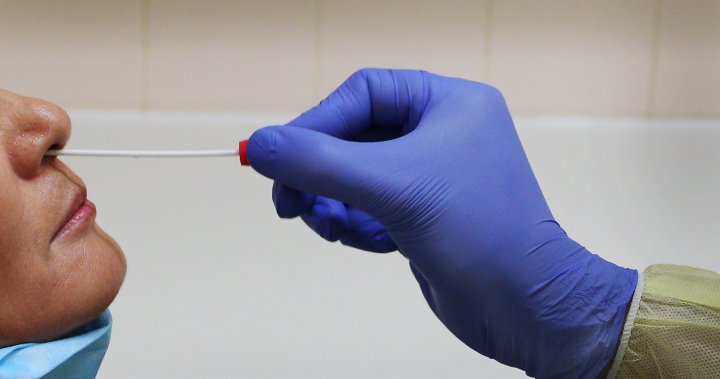A surge in COVID-19 cases across countries in the Northern Hemisphere is causing concern for global health authorities, given that these regions usually witness a peak in respiratory illnesses during the winter months.
The World Health Organization (WHO) on Friday urged countries to strengthen their surveillance and reporting of COVID-19 amid the spike in hospitalizations in the last month, primarily in European nations.
“The virus right now is reinfecting a large number of individuals — millions of people — each week,” warned Dr. Maria Van Kerkhove, the WHO’s technical lead on the COVID-19 response. “We don’t have a good gauge on how many reinfections or infections there actually are because surveillance has declined. But we do have some indications on trends of impact.”
Speaking at a WHO press conference on global health issues on Friday, she said there are a number of countries in the Northern Hemisphere seeing an uptick in cases.
“Northern Hemisphere regions where we are in our summer period … and that is not expected when you are thinking of a respiratory pathogen like influenza that typically has peaks in the winter months,” she said.
She called these cases “concerning,” especially as countries deal with other pressing issues, like health impacts from wildfires and extreme heat.

“While we are certainly not in the same situation of the pandemic that we were in a year ago or two years ago, SARS-CoV-2 circulates in all countries right now and it is causing a large number of infections and reinfections or hospitalizations, admissions to ICU and deaths,” Van Kerkhove said.
The warning comes as the WHO is monitoring several COVID-19 variants.
For example, a new, highly mutated variant known as BA.2.86 (which stems from Omicron), has been circulating across the globe. Ten cases have been detected in Denmark, Israel, the United Kingdom, the United States and South Africa, according to the WHO. It has also been detected in wastewater sampling in Switzerland and Thailand.
Last week, the WHO classified BA.2.86 as a “variant under monitoring” due to the “large number of mutations identified.”
“We have only seen a few detections,” Van Kerkhove said at the press conference. “We are not able to estimate its growth rate because we have so little data…. We can’t predict with certainty what will happen to this variant or any variant. We expect the number of cases to increase.”

BA.2.86 has not been given a “Greek letter” because that is only reserved for variants that are classified as variants of concern, she added.
Canada is also tracking the variant.
A Health Canada spokesperson told Global News on Aug. 18 that “Public Health Agency of Canada scientists, along with national and international experts, are actively monitoring and evaluating BA.2.86 lineages and their associated studies.”
As of last Friday, “there have been no detections of the BA.2.86 lineage in Canada,” the spokesperson said.
When asked by a reporter whether the variant is showing any new symptoms, Van Kerkhove said “it’s still quite early days,” but “we do know that none of the individuals were immune compromised, which is quite interesting.”
Although the world is moving on from the pandemic, and there is no longer a public health emergency, the WHO said surveillance of the virus still remains critical, as COVID-19 is always evolving.
“So while individuals are moving on, we are telling governments that they cannot,” she said.
“They need to continue to keep up these systems for COVID. Governments have to remain diligent for COVID because the threat is not gone.”
— with files from Global News’ Sean Boynton
© 2023 Global News, a division of Corus Entertainment Inc.




